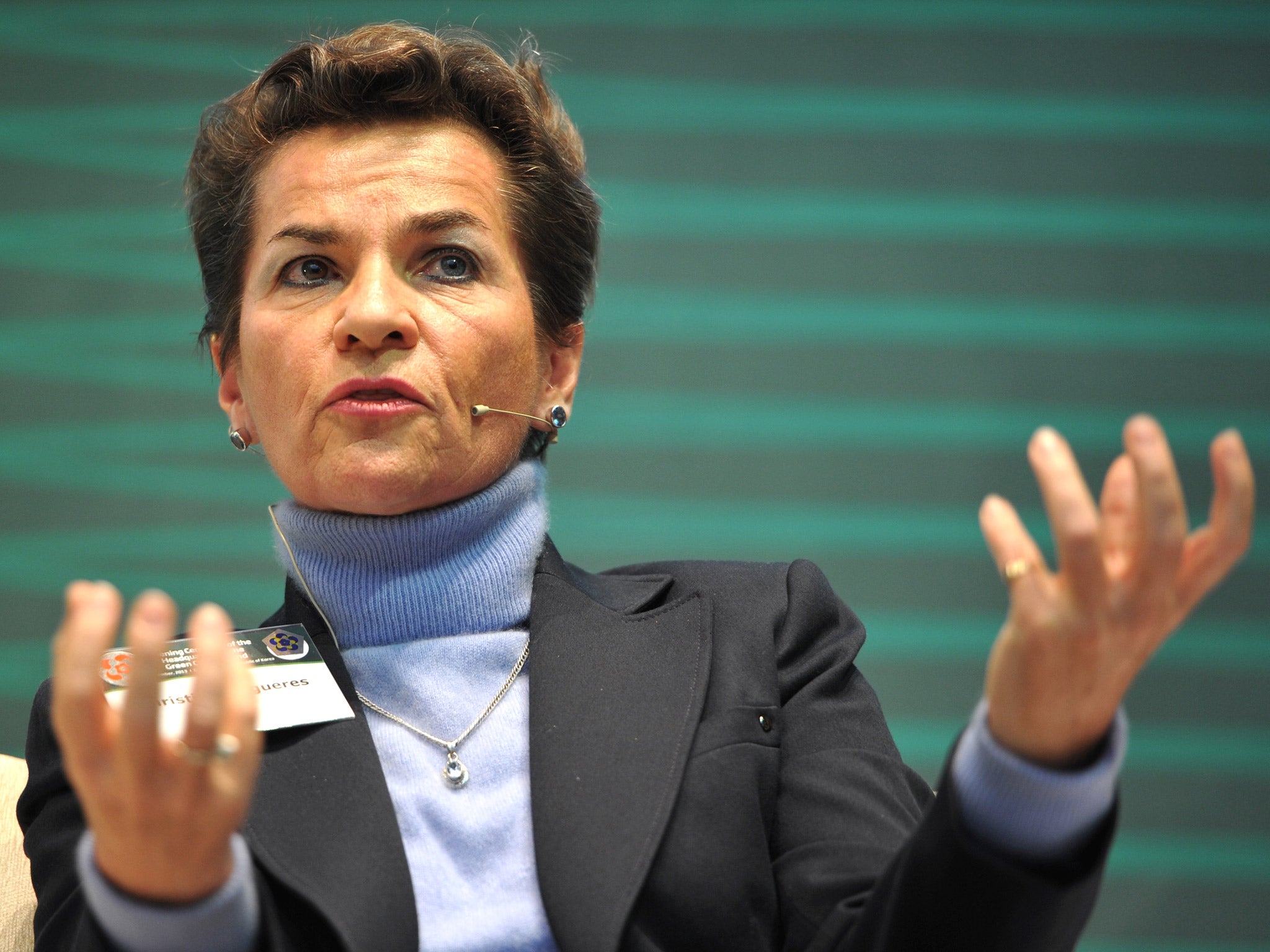Scientists must stop using 'weirdo words' if they want to convince the public that climate change is real, admits the woman in charge of the next major UN summit

Your support helps us to tell the story
From reproductive rights to climate change to Big Tech, The Independent is on the ground when the story is developing. Whether it's investigating the financials of Elon Musk's pro-Trump PAC or producing our latest documentary, 'The A Word', which shines a light on the American women fighting for reproductive rights, we know how important it is to parse out the facts from the messaging.
At such a critical moment in US history, we need reporters on the ground. Your donation allows us to keep sending journalists to speak to both sides of the story.
The Independent is trusted by Americans across the entire political spectrum. And unlike many other quality news outlets, we choose not to lock Americans out of our reporting and analysis with paywalls. We believe quality journalism should be available to everyone, paid for by those who can afford it.
Your support makes all the difference.The battle against climate change is being undermined by the use of “weirdo words” by scientists and United Nations staff that is alienating the general public and confusing policymakers, the UN’s top climate official warned yesterday.
As governments around the world prepare for a crucial UN climate change summit in Paris in 2015, which could determine whether the worst excesses of global warming can be avoided, the woman in charge of the event, Christiana Figueres, said “communication is our major challenge”.
“It is extremely difficult for scientists to speak in a way that policymakers can understand them. Just like it is extremely difficult for delegates of the UNFCCC to speak in a language that anybody on the street understands,” said Ms Figueres, executive secretary of the United Nations Framework Convention on Climate Change (UNFCCC).
Governments have agreed to use next year’s annual UNFCCC meeting to agree legally binding emissions targets sufficient to limit global warming to 2C – beyond which the consequences are increasingly devastating. However, even the most optimistic advocates of the process agree the UN has set a gigantic task. Ms Figueres says the key to succeeding is to “humanise” the message that climate change is a massive threat, requiring immediate and drastic action.
“Communication is a challenge that we all face. I could sit here and rattle off 76 acronyms that would be completely un-understandable to you and maybe half of them to me,” adding that she “takes heart” from the fact that the various climate change wings of the UN and many other constituencies realise there is a communication problem and are determined to set that right.
“You know something’s a good idea when everybody else reaches the same conclusion at more or less the same time… Everybody has reached the conclusion that we are just not communicating properly. I see more and more scientists making a huge effort to translate – to not use weird weirdo words, to use simple words and above all to humanise.”
“We need to put a human face on climate. This is not some esoteric concept out there with scientists that has nothing to do with human beings. In as much as we can, we must show what the impact is on citizens, on communities, on cities. That is what actually helps to bridge the communications gap, even more than words will,” Ms Figueres said.
The increasing incidence of extreme weather is around the world will also help the cause of agreeing stringent emissions targets in Paris 2015, she said.
Extreme weather events such as flooding in the UK and Australia’s hottest year on record were building the case for combating climate change around the world, she said.
Ms Figueres praised the UK government for setting a good example to the rest of the world by setting ambitious, legally-binding targets to reduce emissions.
Join our commenting forum
Join thought-provoking conversations, follow other Independent readers and see their replies
Comments